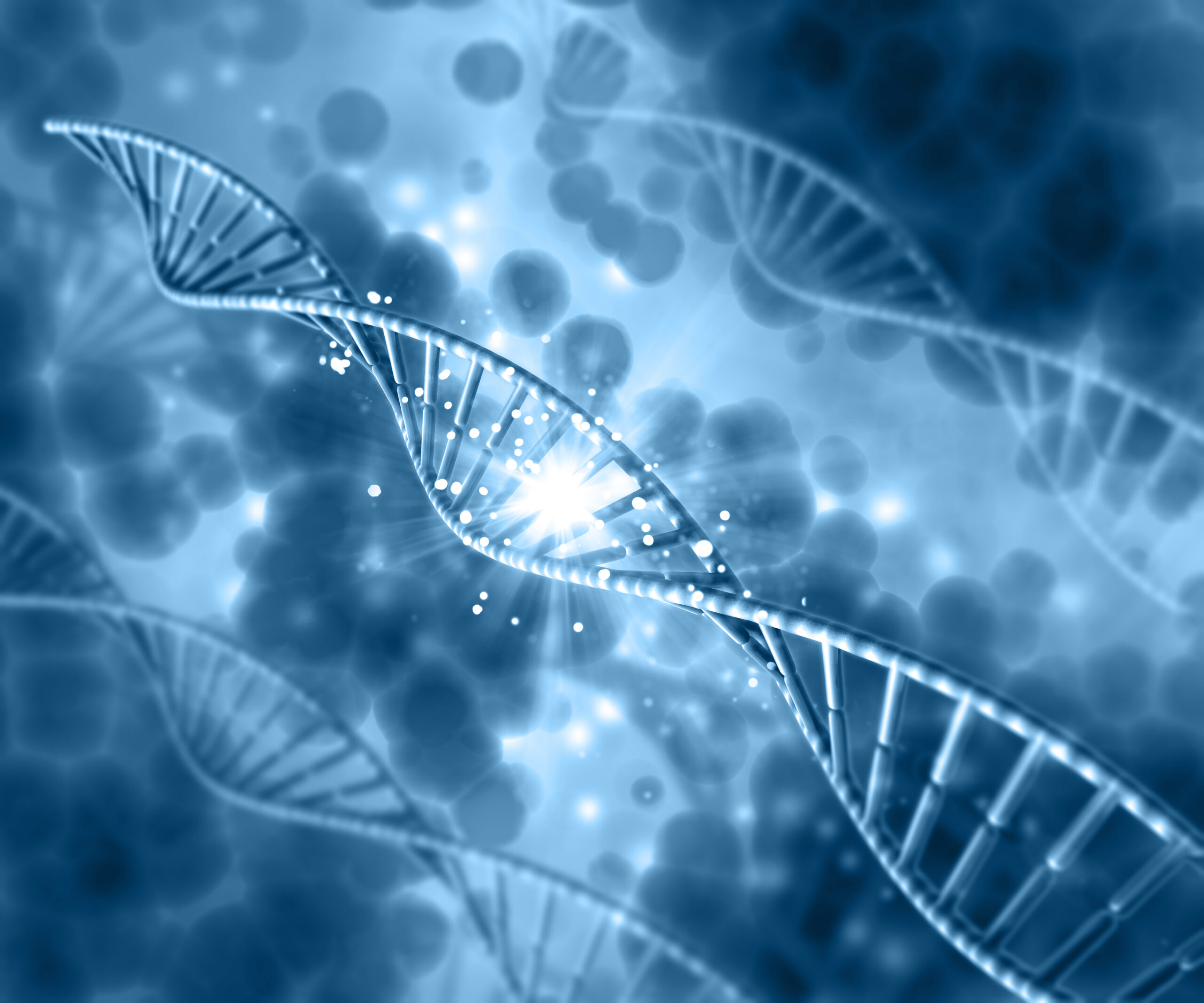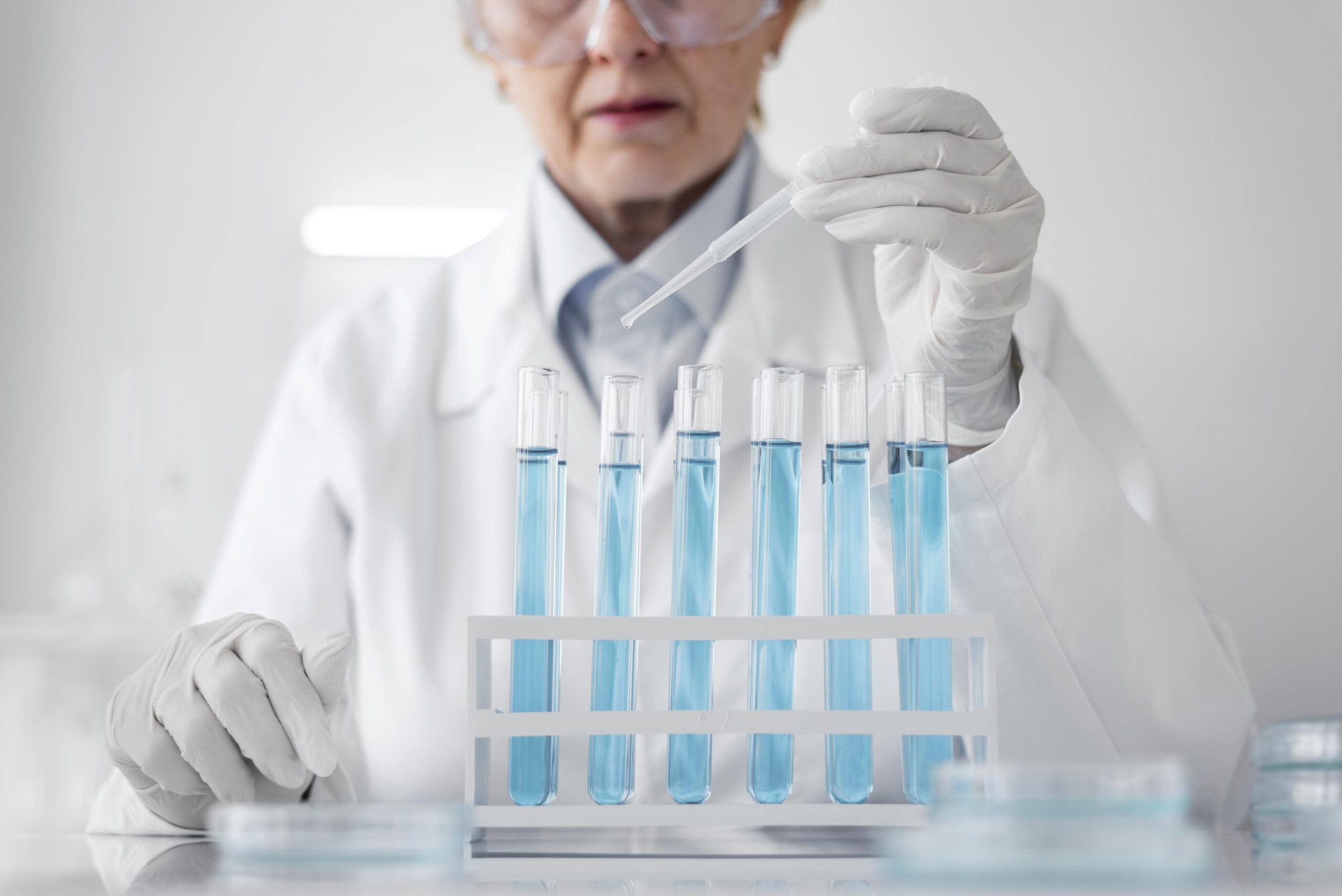Genetic testing is a medical test that determines modifications in genes, chromosomes, or proteins. The development of a genetic test may verify or rule out a suspected genetic disorder or help specify a person’s chance of developing or passing on a genetic condition.
Before undergoing genetic testing![]() , collect a sample containing our DNA, such as a blood sample (taken using a provided kit or during a routine blood test) or a swab from the inside of the cheek (after rinsing to remove food particles). The waiting time for test results depends on the scope of analyses performed. We usually wait from a few days to a few weeks.
, collect a sample containing our DNA, such as a blood sample (taken using a provided kit or during a routine blood test) or a swab from the inside of the cheek (after rinsing to remove food particles). The waiting time for test results depends on the scope of analyses performed. We usually wait from a few days to a few weeks.
Before you perform genetic testing, complete an informed consent form for such analyses. The tests are safe and non-invasive, but their results can change our lives, influence our psyche, radically rebuild family relationships, etc.

Genetic testing is used by specialists in many areas of life—it is a court-recognized method of testing kinship or paternity and a commonly used identification method in forensics. However, the medical use of genetic tests is intended to detect changes in a person's genetic material (germline mutations), thus enabling the acquisition of important information about their health.
The specialists use genetic tests to diagnose, among other things, genetic diseases. Based on the tests performed (genetic material from a blood sample or a cheek swab from the patient), information can also be obtained about hereditary predispositions or the tendency to be at risk of developing certain diseases, such as various groups of cancers, congenital defects, and intolerances (e.g., lactose intolerance).
Genetic tests make it possible to assess the likelihood of developing diseases such as:
The evaluation of genetic test results should be consulted with a geneticist![]() .
.
Genetic testing is often recommended when there is suspicion of an inherited condition or a genetic predisposition to certain diseases, as there are no restrictions on their use. These tests can identify genetic mutations responsible for congenital defects or diseases. They are suitable for all age groups and do not require any special preparation.
Performing a genetic test yourself involves repeatedly rubbing the inner side of the cheek with a cotton-tipped stick. Two hours before the test, you should not eat or drink anything, and you should not touch the cotton pads with your fingers.
After scraping the mucous membrane from the cheek, the cotton swab should air dry for about two hours. During this time, it cannot come into contact with anything. The swabs are then placed in test tubes.
There are several types of DNA tests. One of them is prenatal genetic testing.

Genetic testing is a part of prenatal diagnosis![]() and is a fundamental method for identifying developmental defects or genetically inherited diseases in a child. The most common indications for genetic testing of the fetus are developmental abnormalities detected during routine, non-invasive tests during pregnancy, the presence of genetic diseases in the family, the advanced age of the parents, or the diagnosis of a chromosomal aberration in at least one parent.
and is a fundamental method for identifying developmental defects or genetically inherited diseases in a child. The most common indications for genetic testing of the fetus are developmental abnormalities detected during routine, non-invasive tests during pregnancy, the presence of genetic diseases in the family, the advanced age of the parents, or the diagnosis of a chromosomal aberration in at least one parent.
If the family has a history of genetic diseases or the parents are carriers of mutations, they must receive genetic counseling already at the stage of pregnancy planning. Consultation with a geneticist and the necessary tests will allow you to assess the risk of a specific genetic defect in your child.
In prenatal diagnosis, genetic tests are very often performed and are also used in postnatal diagnosis, e.g., karyotype testing. Performing a molecular test on a sample of biological material taken from a fetus is usually more challenging than on material taken from a newborn, child, or senior. This is due to the smaller volume of the test sample that can be taken from the fetus, the need to provide the result as quickly as possible, and the limited possibilities of repeating the test due to the small amount of material.
The specialists categorize various types of prenatal genetic diagnosis; into two main tests:
Most diagnostic tests are invasive, involving the collection of biological material from the fetus.
Invasive prenatal testing involves various techniques for collecting the necessary material:
An alternative to invasive tests is the non-invasive prenatal tests![]() (NIPT).
(NIPT).
At the beginning, the patient (or the patient's family present at the visit) presents their problem and the purpose of the visit![]() to the geneticist.
to the geneticist.
The geneticist conducts a thorough interview![]() about the clinical issue, inquiring about the health history of offspring, siblings, parents, cousins, and even grandparents, gathering details on living and deceased family members, including age and cause of death. They review medical records and test results and if necessary, conduct a physical examination and prepare medical documentation. Then, they devise a diagnostic plan and discuss it with the patient, ordering relevant tests to determine if the observed condition has a genetic basis.
about the clinical issue, inquiring about the health history of offspring, siblings, parents, cousins, and even grandparents, gathering details on living and deceased family members, including age and cause of death. They review medical records and test results and if necessary, conduct a physical examination and prepare medical documentation. Then, they devise a diagnostic plan and discuss it with the patient, ordering relevant tests to determine if the observed condition has a genetic basis.
If the doctor has ordered genetic testing, the patient goes to the collection room where, depending on the type of test, venous blood or an oral swab is taken.
Genetic testing conducted on a blood sample, from which DNA is extracted, necessitates no specific pre-test preparation. The patient is not required to fast, and the specialist can collect blood samples at any time of the day.
For some genetic tests involving material from the oral cavity, the patient should abstain from eating, drinking, or smoking for one hour before collection. This material is obtained using a specialized swab gently rubbed on the interior of the patient's cheek for several seconds.
In the instance of genetic testing, such as for urogenital infections in women, a gynecologist or midwife must collect a smear from the cervix or vagina. To prepare for the collection, women should refrain from sexual intercourse for at least 24 hours, avoid using vaginal medications or external ointments for a minimum of 48 hours, and allow a seven-day interval following antimicrobial treatment. Material for testing should not be collected during menstruation.
If HPV-DNA testing![]() is conducted using the PCR method, test material collected from women comprises a cervical swab, vaginal swab, urethral swab, and from men, a swab from the urogenital tract. It is recommended for the patient to observe a 24-hour abstinence from ejaculation and to abstain from urination for at least 2 hours before collection.
is conducted using the PCR method, test material collected from women comprises a cervical swab, vaginal swab, urethral swab, and from men, a swab from the urogenital tract. It is recommended for the patient to observe a 24-hour abstinence from ejaculation and to abstain from urination for at least 2 hours before collection.
At the next visit, the specialist will:
The entire genetic counseling process usually requires 2-3 visits to the clinic – less complicated clinical situations and with standard genetic test results, the visit to the genetic clinic may be a single visit, and the test results may be sent to the patient electronically or issued in person.
When visiting a specialist, the geneticist documents the individual's phenotype by taking photographic evidence, which is a confidential part of the medical record and can only be used for diagnostic purposes.

For every appointment at the specialist, remember to bring your ID card (or health booklet for minors), medical records related to your health issues and those of your family members (such as previous test results and information cards), and photographic documentation. To the cancer predisposition consultation bring a copy of medical records specific to cancer, especially the results of histopathological examination if you have had the disease, as well as medical documentation for other family members affected by cancer, if available.
Genetic testing can cause mixed feelings and even fear. Therefore, when considering it, it is worth familiarizing yourself with some facts about it.
Genetic testing is not restricted. Anyone can order such a test, regardless of age or gender.
The most frequently used method of collecting material for testing is a swab from the inside of the cheek. Thanks to this, the test is painless and allows the patient to collect the sample themselves and submit it for analysis.
DNA![]() does not change – apart from somatic mutations affecting specific cells, the genetic material of our body remains the same throughout our lives. Therefore, there is no need to repeat genetic tests, and by performing them once, you gain valuable knowledge for life.
does not change – apart from somatic mutations affecting specific cells, the genetic material of our body remains the same throughout our lives. Therefore, there is no need to repeat genetic tests, and by performing them once, you gain valuable knowledge for life.
When talking about genetic tests, remember that their results are not a verdict. These tests aim to detect the risk of genetically determined diseases. The fact that a given mutation occurs does not mean that the examined person is doomed to a health problem. However, it is valuable knowledge about the tendency to develop a given disease which may or may not occur. It is worth noting here that the occurrence of most genetic diseases is influenced not only by the tendency stored in the genes but also by environmental conditions (including lifestyle).
Reluctance to undergo genetic testing for fear of the results can be compared to avoiding a doctor for fear of diagnosis. Postponing such tests will not in any way influence the results. On the contrary – the sooner we know the result, the sooner we can act. Therefore, despite the fear of receiving information about a predisposition to a genetic disease, it is worth remembering that an earlier diagnosis is a chance for prevention, lifestyle change, and faster treatment. And these factors, in turn, can determine how our future lives will unfold.
Genetic testing allows for an accurate diagnosis – and an accurate diagnosis translates into even better treatment. Treatment is not based only on the doctor's suspicion or intuition – but is tailored to a specific genetic disease – personalized treatment takes place, consisting of optimizing the treatment by using the most effective form of therapy.
Often in a doctor's office, a patient is asked about diseases occurring in family members. On this basis, the doctor deepens his knowledge about the patient, considering the possibility of a possible predisposition to genetic diseases. Contrary to the assumptions made in the case of a medical interview, the result of a genetic test gives a clear answer as to the carrier status of a specific mutation and the possibility of the disease also occurring in the relatives of the tested person.
Confirmation of a genetic mutation in one of the family members is a clear indication for their relatives that they need to undergo diagnostics and carry out regular check-ups. Moreover, these relatives can adjust their lifestyle or start treatment before symptoms appear.